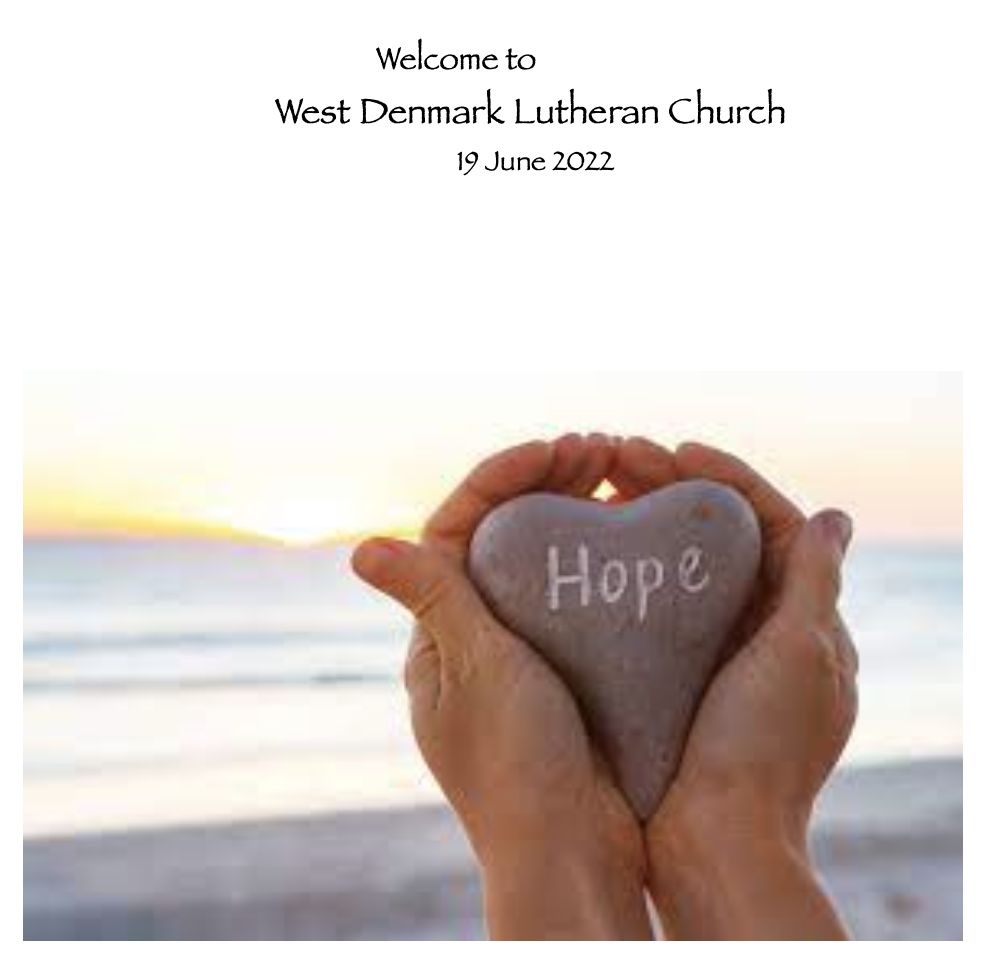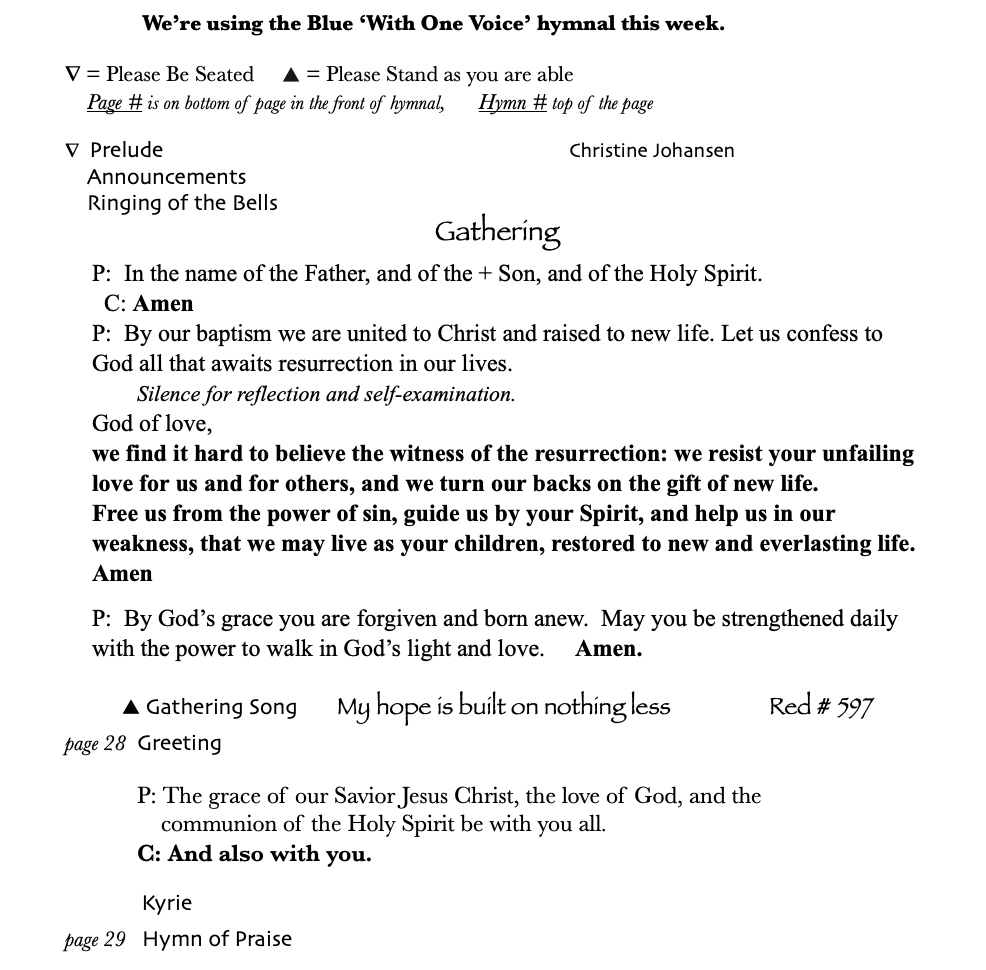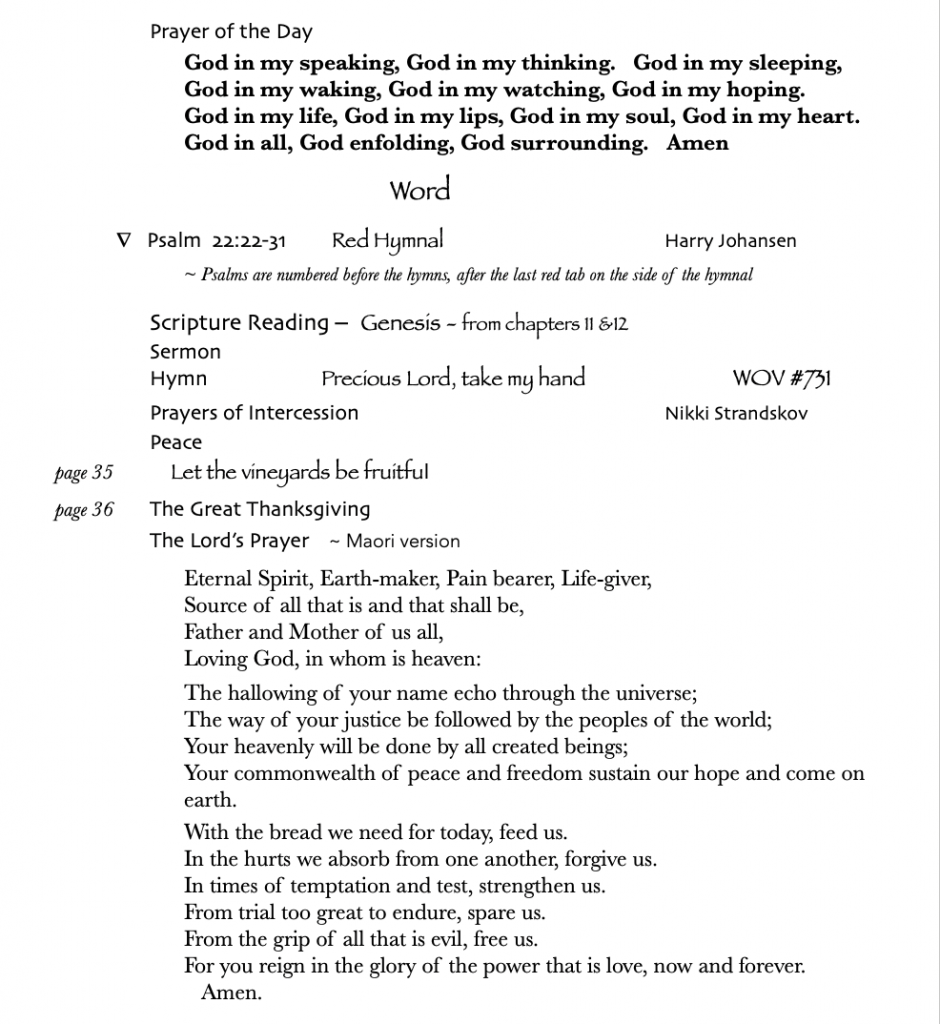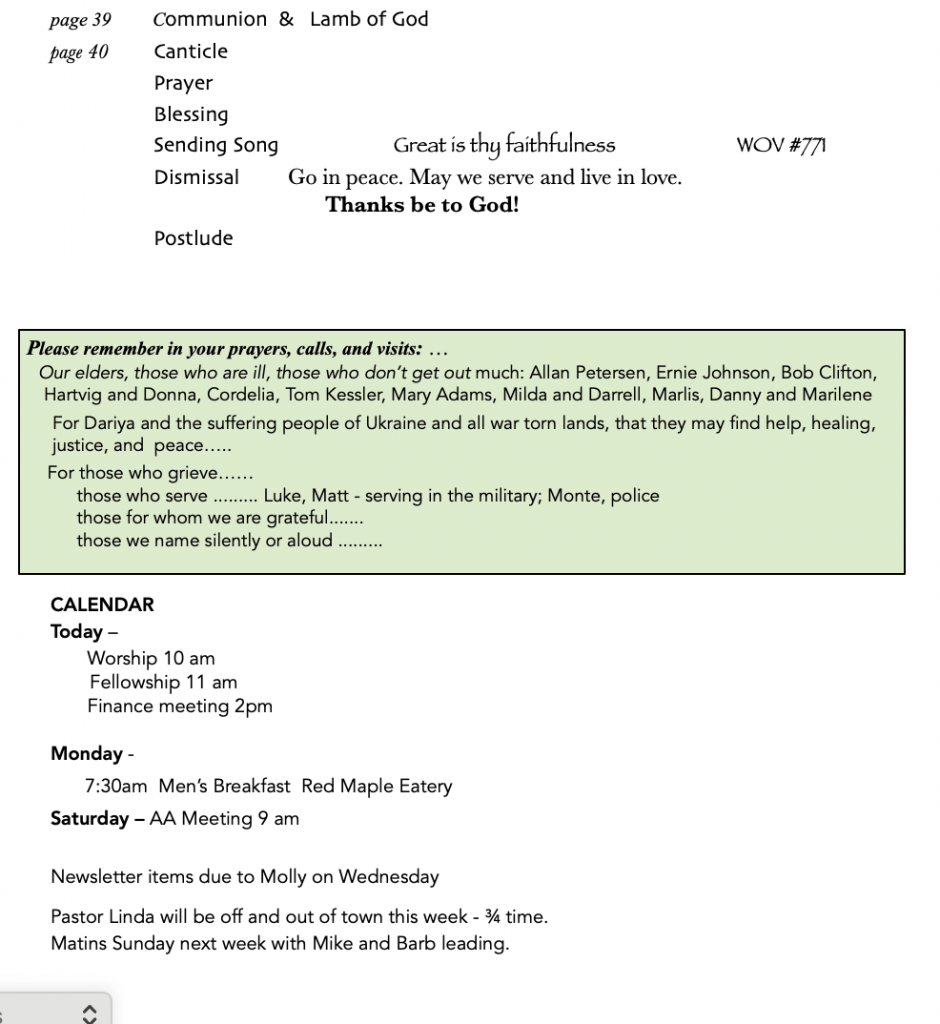Audio Recording

This is week two on the topic of HOPE. I want to start by making a distinction between Hope and hoping. Most of us have something we’re hoping for. It might be some thing; or for something to happen or not happen (some opportunity, or change in politics, or a dream vacation, or retirement, or not to get Covid). There’s specificity to our hope. We can name it. Hoping for something is one step more substantive than wishing in that we have some power to make the thing we’re hoping for come to be. But, there is also a passive nature to hoping: it’s about externals somehow cooperating with our desires.
Hope is different. Living in hope is a way of being, of behaving, of ordering one’s thoughts – and we can absolutely choose it. There is intentionality in hope, internal action.
A second difference (I think) is that hope lives in the realm of relationships rather than things or externals.
The first biblical story about hope is between Abraham and God.
11:27 Now these are the descendants of Terah. Terah was the father of Abram, Nahor, and Haran; and Haran was the father of Lot. 28Haran died before his father Terah in the land of his birth, in Ur of the Chaldeans. 29Abram and Nahor took wives; the name of Abram’s wife was Sarai, and the name of Nahor’s wife was Milcah. 30Now Sarai was barren; she had no child.
31 Terah took his son Abram and his grandson Lot, and his daughter-in-law Sarai, and they went out together from Ur of the Chaldeans to go into the land of Canaan; but when they came to Haran, they settled there… and Terah died in Haran.
12:1 Now the Lord said to Abram, ‘Go from your country and your kindred and your father’s house to the land that I will show you. 2I will make of you a great nation, and I will bless you, and make your name great, so that you will be a blessing. 3I will bless those who bless you, and the one who curses you I will curse; and in you all the families of the earth shall be blessed.’
4 So Abram went, as the Lord had told him; and Lot went with him. Abram was seventy-five years old when he departed from Haran. 5Abram took his wife Sarai and his brother’s son Lot, and all the possessions that they had gathered, and the persons whom they had acquired in Haran; and they set forth to go to the land of Canaan.”
They got as far as Bethel, but there was a great famine so they detoured to Egypt for some period of years. When they returned to Bethel, they had acquired even more sheep and cattle and camels and Lot chose to go east and Abram went west. Chapter 13 ends with the Lord saying to Abram, ‘Raise your eyes now, and look from the place where you are, northwards and southwards and eastwards and westwards; 15for all the land that you see I will give to you and to your offspring for ever. 16I will make your offspring like the dust of the earth; so that if one can count the dust of the earth, your offspring also can be counted. 17Rise up, walk through the length and the breadth of the land, for I will give it to you.’ 18So Abram moved his tent, and came and settled by the oaks of Mamre, which are at Hebron; and there he built an altar to the Lord.”
The hope was kindled. Abraham and Sarah went back and forth between hoping and doubting when the child they hoped for didn’t come, when God was silent for years. But still they remained faithful, expectant, in relationship with God.
I think the Hope of Abraham is perfect for this Sunday that is Father’s Day.
Our son became a father this week. I have to keep saying that out loud to believe it. Sometime around Christmas it sank in to Peter that this pregnancy thing was sticking around. The bump was visible and Andi could feel faint butterfly movements of their child. In the conversations and comments of the months since then, I’ve been reminded that pregnancy is woman’s work. The dad can be interested and involved to some extent, but at least in my experience with Mike and Peter, the nine months of incubation is hypothetical. Kind of a twilight zone reality. I say that with all love and affection. I know Peter will be YouTubing his way through the next six months. YouTube is the do-it-yourself-guide-to-life for his generation. And they’ll do just fine. But the faithful, innocent expectation of a dad-to-be is the best image I can think of for this kind of spiritual hope.
Abraham and Sarah didn’t have any proof that God would do as God had said. Year after year they remained childless. How could they be the parents of, and blessing to, nations without a single child? How could their descendants be like the dust of the earth, or inhabit even the back yard if there is no child?
Even in our modern times, things can go terribly wrong in pregnancy. There is no guarantee that the mom and baby will be healthy. It is hypothetical hope in many ways, awaiting the proof of birth. I don’t mean to be creating tension – in our case, everything is fine, they got home from the hospital yesterday evening and were looking forward to not sleeping well, but at least in their own bed.
Faithful expectancy is also realistic. From Abraham and Sarah in Hebrew Scriptures to Paul in the New Testament, living in hope is knowing that it is grounded in a God who walks alongside us, who doesn’t protect us like a forcefield, who may seem silent for years, but who never-the-less promises to be, and to be with us in this life. Living in trust, in hope, with a kind of grounded optimism is a choice more than a spiritual gift. We can teach ourselves to be generous in our thoughts and actions toward others, to be forgiving of ourselves, kind to ourselves, to look for the good around us even if it takes a bit of digging.
I kind of like the phrase hypothetical hope. A hypothesis is a provisional idea awaiting further research that begins with an educated guess or thought. In formal logic it is expressed in a what if question or an if, then formulation. This is where the language of Paul lands. 1 Corinthians 1513If there is no resurrection of the dead, then Christ has not been raised; 14and if Christ has not been raised, then our proclamation has been in vain and your faith has been in vain. 20 But in fact Christ has been raised from the dead…” and on he goes in what sounds like circles to us. Paul was building a case in the logic of his day, formulating hypothetical hope in the resurrection of Jesus as the basis for risking the dangers of claiming Christ, not Caesar, as Lord in the people’s daily life.
The hope we choose affects the way we live. I don’t know that we can choose to have faith. I think we can’t really decide to believe in God or Jesus, but by choosing hope we put ourselves in the way of faith, mingling in the same room, giving openings for conversations with the Spirit of God, and then, who knows what might happen? And we are able to behave in faithful ways. Innocent, faithful, optimism might be naive. It certainly sounds like it is when the headlines pop up on my BBC News homepage. But if we don’t ask the what if questions, if we don’t open ourselves to the possibility of goodness and kindness and divine grace, if we don’t expect the baby – then how will we catch it and care for it and love it when it comes?
Do you have a sense of expectant hope? Psychologists say it gives us resiliency to deal with disappointments, illness, grief, trauma. With life, in other words. And it can be learned, added to your tool belt. When Paul talks about faith, hope, and love, he is talking about actions and behaviors, not feelings – about ways of treating one another, treating yourself as we face the challenging world around us.
Today is also Juneteenth and another reminder of the racism that scars our country’s history and present life. Expectant, intentional hope is a practical way forward, living into the vision of a better way, choosing awareness of our own prejudices and cultural blinders, and choosing to speak up, to vote, to act out of faithful optimism for the future we want our children and grandchildren and their children to inherit.


